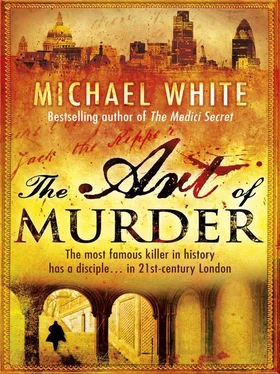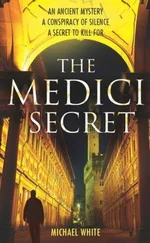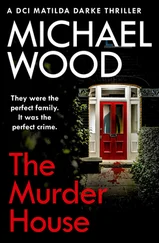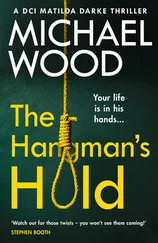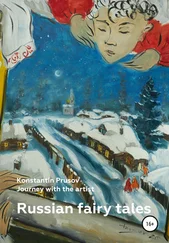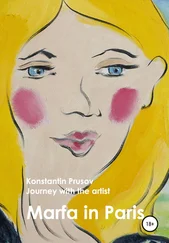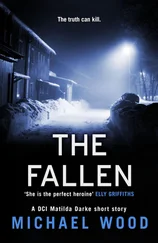Michael White - The Art of Murder
Здесь есть возможность читать онлайн «Michael White - The Art of Murder» весь текст электронной книги совершенно бесплатно (целиком полную версию без сокращений). В некоторых случаях можно слушать аудио, скачать через торрент в формате fb2 и присутствует краткое содержание. Жанр: Триллер, на английском языке. Описание произведения, (предисловие) а так же отзывы посетителей доступны на портале библиотеки ЛибКат.
- Название:The Art of Murder
- Автор:
- Жанр:
- Год:неизвестен
- ISBN:нет данных
- Рейтинг книги:3 / 5. Голосов: 1
-
Избранное:Добавить в избранное
- Отзывы:
-
Ваша оценка:
- 60
- 1
- 2
- 3
- 4
- 5
The Art of Murder: краткое содержание, описание и аннотация
Предлагаем к чтению аннотацию, описание, краткое содержание или предисловие (зависит от того, что написал сам автор книги «The Art of Murder»). Если вы не нашли необходимую информацию о книге — напишите в комментариях, мы постараемся отыскать её.
The Art of Murder — читать онлайн бесплатно полную книгу (весь текст) целиком
Ниже представлен текст книги, разбитый по страницам. Система сохранения места последней прочитанной страницы, позволяет с удобством читать онлайн бесплатно книгу «The Art of Murder», без необходимости каждый раз заново искать на чём Вы остановились. Поставьте закладку, и сможете в любой момент перейти на страницу, на которой закончили чтение.
Интервал:
Закладка:
Ignoring Mary’s efforts to break free, I surveyed the room. Even by the standards I had grown accustomed to in the Stew, the place was squalid beyond belief. There were piles of filthy clothes lying on the floor and thrown over the foot of the bed. The sheets were soiled and grey. The mean light I had seen earlier came from a gas mantle in the far corner. There was a fireplace in the wall nearest the door, but it was empty. The room was freezing.
Two rickety wooden chairs stood against the back wall, adjacent to the end of the bed. I extracted a box of matches from my bag and, finding some scraps of old newspaper on the floor, laid a fire in the grate. Grabbing a chair, I wrapped the legs in some of the repulsive clothes and rags scattered on the floor and smashed them against the end of the bed. The chair made a dull thud as it crumbled. I then yanked away the clothes and snapped the pieces of shattered timber until I had a nice pile of kindling for the fire. Within a few minutes, the flames were lapping and I could warm my hands in front of them.
‘An extremely cold evening, I’m sure you’ll agree, Mary,’ I said to my prisoner.
She made some indecipherable sound through the gag, which I ignored. Then, satisfied my hands were warm enough, I set to work.
I did not sleep after returning to my room but began painting while everything was fresh in my mind. I knew that it would only be a matter of time before pandemonium broke out in the neighbourhood and the sheep started bleating.
I lost all track of time, but sure enough, around 11 a.m., I heard the sound of the police racing to the scene and the raised voices of shopkeepers in the street below my window. I felt a delicious sense of being anonymously at the centre of everything, behoven to none, a Master of the Universe, a god who could pull the strings of the little people and make them dance. It was utterly intoxicating.
Looking down at myself, I noticed my clothes were still soiled with streaks of blood and there was a small lump of tissue caught in one of the buttonholes of my waistcoat. Without further ado, I stripped, put the clothes into a bag, washed thoroughly, checking my appearance in the mirror close to the bowl, and changed into fresh things. By 11.30 I was at the entrance to Miller’s Court watching, with concealed delight, the scurrying and the palpable distress.
Just before I approached the door to Mary Kelly’s room, my attention was drawn to a policeman. His back was towards me as he bent forward in the shadows and vomited noisily against the wall. My goodness, how people overreact, I thought as I took a step closer to the door.
Two men emerged. One of them I recognised as Inspector Abberline. He had the complexion of a ghost, the blood completely drained from his face. He looked up suddenly and glared at me. We had met once before, the day after my busy night dispatching Elizabeth and Catherine.
‘Mr Tumbril,’ he croaked. ‘How pleasant.’
I doffed my cap.
‘I think even you would rather not go in there,’ Abberline added with a slight flick of his head.
The policeman who had been vomiting appeared from the shadows wiping his mouth and looking embarrassed. He was about to speak, but when he saw Abberline’s expression he straightened his jacket and retreated.
‘These things are never pleasant, Inspector,’ I replied as politely as I could. ‘But I have a job to do.’
Abberline fixed me with a cold look, and then, without uttering another word, walked straight past me towards the alleyway and the main road beyond.
Inside, things were pretty much as I had left them. Mary was opened up from throat to groin. Most of her organs had been removed and placed around the room. The fire was burning and there was an oily deposit running up the wall above the grate — human fat that had reconstituted after vaporising in the flames.
A doctor and his assistant were at the scene studying the body. They ignored me completely and I stepped over to the far side of the room, pulled my sketchpad from my bag and began to draw.
It was then that my world changed. My eyes followed the lines of ruin in Mary Kelly’s body, tracing the red and the grey lacerations along her thighs and across her devastated face. Her features were almost unrecognisable as ever having been human. It was at that precise moment I suddenly realised I was wasting my time. There was no need to draw, no need to paint, no need to represent . My art lay there on the bed, just as my other recent creations had lain on the wet ground of dark alleyways. Furthermore, this work was on a grand scale. In itself, each murder was a beautiful piece. But together … together they formed a gestalt , a masterpiece. The bit players, the Abberlines and the Archibalds, the plodding plodders and the doctors studying the inanimate flesh, they were all characters in the finished work, angels in the corner of a Michelangelo, foliage bordering a landscape. It was magnificent. I was magnificent.
In a delirium, I returned my sketchpad to my bag, turned and walked out of number thirteen Miller’s Court. Unaware of anything going on around me, I swung into Dorset Street, weaving my way back to my room on Wentworth Street. Reaching the door at the side of the corn-chandler’s shop, I turned the key in the lock, closed the door behind me and walked along the narrow hallway. Slowly, I ascended the stairs feeling as though the world could not become a better place. The conviction that I had broken through into a new form of perception was almost overwhelming.
Outside my door, I thought I heard a tiny sound from inside. I turned the key quietly and pushed the door inwards. I had left the curtains closed, but it was past midday and the sun was bright, casting a sparse light about the room. In my haste, I had left my collection of bloodied knives and a saw in my open leather bag. A bloodied cloth lay draped over the side of it. The entire arrangement sat beneath my latest painting. Standing a few feet from the bag and the canvas, close to the middle of the room, was Archibald Thomson.
Chapter 41
Brick Lane Police Station, Wednesday 28 January, 9 a.m.
Pendragon met Jimmy Thatcher at the entrance to the Briefing Room. The sergeant was holding a low-sided cardboard box filled with packets of sandwiches and cups of coffee from the local deli.
‘Good man,’ Pendragon said, opening the door for Thatcher and following him in. He picked a coffee and a sandwich from the box and walked to the front of the room to take a seat next to Superintendent Hughes. The whole team had gathered. Pendragon glanced round the room and saw how tired everyone looked. Some had been working all night and the strain was beginning to show.
He thought it best to dive straight in. ‘Okay,’ he said, standing up. Gripping the edge of a desk, he leaned forward. ‘We have a fourth murder and a suspect in custody. But I have grave reservations about his possible guilt.’
‘Why? Hughes said, turning to him. ‘Francis Arcade was found at the murder scene and the dead woman had his fingerprints on her face.’
‘That’s correct. But Arcade could not have killed the first two victims. And he definitely did not kill O’Leary unless he slipped out of the cell, killed the priest and slipped …’
‘There’s no need to be sarcastic, Inspector.’
Pendragon checked himself. ‘Yes, Arcade could have committed the latest murder,’ he managed to say evenly. ‘A copy-cat murder …’
‘That is possible,’ Grant interrupted.
Pendragon nodded and waited a moment before picking up where he had left off. ‘It is possible. I’ve just come from questioning him a second time. Except I couldn’t get a word out of him. He’s clammed up again. He’s almost catatonic.’
Читать дальшеИнтервал:
Закладка:
Похожие книги на «The Art of Murder»
Представляем Вашему вниманию похожие книги на «The Art of Murder» списком для выбора. Мы отобрали схожую по названию и смыслу литературу в надежде предоставить читателям больше вариантов отыскать новые, интересные, ещё непрочитанные произведения.
Обсуждение, отзывы о книге «The Art of Murder» и просто собственные мнения читателей. Оставьте ваши комментарии, напишите, что Вы думаете о произведении, его смысле или главных героях. Укажите что конкретно понравилось, а что нет, и почему Вы так считаете.
